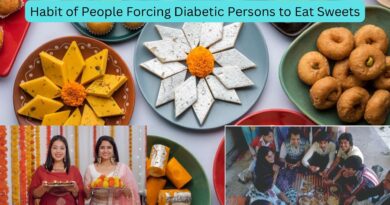3 Weight Loss Mistakes You Need to Avoid in 2025
Introduction
Losing weight can be a challenging journey, and it’s essential to be aware of common pitfalls that can hinder our success. In this article, we will explore three weight loss mistakes that you need to avoid. I’m Dr. Sandeep Ojha, an experienced MD Physician with over 20 years of practice. I will provide you with the most up-to-date and evidence-based information on weight loss, metabolic health, and longevity. Let’s dive in!
The Myth of the Perfect Diet
Understanding Individual Differences
- No universal best diet or nutrition plan
- We are all unique, and what works for others may not work for you
- The noise surrounding diet debates (keto, low fat, plant-based, carnivore)
- The right nutrition plan should not be too limiting and must be sustainable for years
The Complexity of Achieving a Healthy Weight
Obesity as a Complex Disease
- Recognizing that obesity is multifactorial
- Stigmatizing obesity as a lack of willpower or laziness is false
- Factors regulating weight, hunger, and appetite are beyond our control
- Processes in the hypothalamus and limbic parts of our brains
- Realizing the inability to control hunger or food cravings
- Weight regain is not a result of losing willpower but hormonal signals fighting against weight loss
The Role of Medications in Weight Management
Bridging the Gap
- Introduction to medications treating hormonal pathways
- Medications like glp-1 agonists (ozempic and munjaro) and Phentermine
- Leveling the playing field and aiding in focusing on nutrition and lifestyle changes
- Understanding that not everyone with obesity requires medications, but they can be beneficial for some
The Emotional Aspect of Weight Loss
Building a Healthy Relationship with Food
- The importance of paying attention to our relationship with food
- The impact of our current food environment
- Hyperpalatable and calorie-dense foods designed to trigger pleasure receptors
- Difficulty in breaking free from sugar and processed foods due to their addictive nature
- Recognizing emotional eating and the need to address underlying emotions or stress
- The role of anti-obesity medications in managing emotional eating
- The necessity of fixing the emotional aspect and learning to process emotions without food
Conclusion
Weight loss is a complex journey, and avoiding common mistakes is crucial for success. Understanding that there is no one-size-fits-all diet, acknowledging the complexity of obesity, considering medication as a helpful tool, and building a healthy relationship with food are vital steps towards achieving your health goals. Remember, it’s not just about what you eat but also about understanding and addressing the underlying factors that contribute to weight gain and emotional eating.
FAQs
Do I need to follow a specific diet to lose weight?
Are medications necessary for weight loss?
How can I overcome emotional eating?
Are anti-obesity medications addictive?
Can weight loss be achieved without medication?
FOR MORE SUCH ARTICLE CLICK HERE




